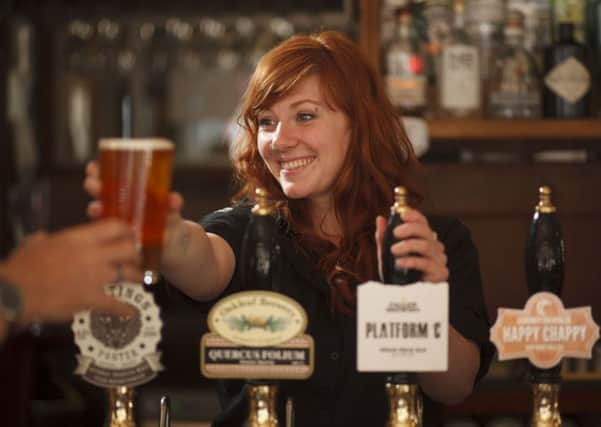Colin Valentine: Here's to a better year with help for pubs


At this time of year people’s thoughts turn to the future and what it may bring and what they hope that it brings. Given that January is named after the Roman god Janus, who faced both forwards and backwards, I thought that it would be appropriate to look back and forward at what 2015 meant to the Scottish brewing and pub industry and my hopes for 2016. To help me out, I enlisted the help of Paul Waterston, the Chief Executive of the Scottish Licensed Trade Association (SLTA), the voice of the independent publican, and Stephen McGowan, one of Scotland’s leading licensing lawyers and I am grateful to both of them for their assistance.
It is fair to say that 2015 was not a great year for the pub trade in Scotland on the legislative front, with yet more legislation that affected it enacted by the Scottish Parliament. The most notable of these actually came into force in 2014 and that was the reduction in the drink driving limit from 80mg to 50mg per 100ml of blood. Although this brings Scotland into line with most of the rest of Europe, the penalties remain the purview of Westminster, meaning that we have European limits and UK penalties. Whilst no-one, least of all Camra, condones drinking and driving, the Scottish Government have not balanced lowering the limit with help for rural pubs, such as encouraging more public transport in rural areas.
Advertisement
Hide AdAdvertisement
Hide AdAt the end of the last Westminster parliament a bill was passed that will allow publicans in England and Wales who are tenants of large pub owning companies to go free of tie rather than having to buy everything from their landlords at whatever price they decide to charge. Unfortunately, the legislation does not apply in Scotland and, along with the SLTA, Camra has been campaigning for most of the year for the Scottish Government to introduce similar legislation in Scotland as it is surely wrong for publicans in the likes of Berwick-Upon-Tweed and Eyemouth who have the same landlord not to have the same opportunities to grow their business.
However, we are hopeful that Scottish legislation can be enacted and will be pushing the Scottish political parties to include a similar opportunity for Scottish publicans in their manifestos for the Holyrood elections in May.
2015 saw the third consecutive cut in beer duty after the scrapping of the beer duty escalator in the 2013 budget, but beer duty in the United Kingdom is still far too high and we have the highest beer tax rate of the top six brewing countries in the EU - we pay 52.2 pence a pint in duty, whereas the Belgians pay 8.9p and the Germans 3.2p. To put it in some kind of perspective, UK drinkers pay 40 per cent of all EU beer tax but consume only 12 per cent of the beer. The pub industry, where beer accounts for seven out of every ten drinks sold, needs a fair crack of the whip and reducing duty in this year’s Budget, with a view to getting it back to the levels it was in 2008 when the escalator was first introduced, will keep pubs open, create jobs, support local communities, increase investment into brewing and pubs and keep the lid on pub beer prices. And what must not be forgotten in all of this is that pubs account for only 30 per cent of all alcohol sold in Scotland – the supermarkets have almost all of the rest and it is consumption from the off trade, which is primarily responsible for any alcohol related issues that this country might have.
One hope that I have for 2016 is for publicans to be allowed to get on with running their businesses and remaining the beating heart of the community with no more restrictive legislation, which seems to be dreamt up on a whim by our politicians to address what is perceived to be that day’s problem – let’s call it “something must be done” legislation. There are currently 5 acts of the Scottish Parliament, 35 regulations and 32 local licensing board policies plus dozens of reported and unreported cases which make up the licensing laws of Scotland. Surely that is enough for one industry and perhaps our elected politicians should take a step back and consider the long term impact of proposed legislation rather than seeking some short term publicity. A forlorn hope perhaps but, if you don’t ask, you don’t get.
• Colin Valentine, National chairman of the Campaign for Real Ale (Camra)